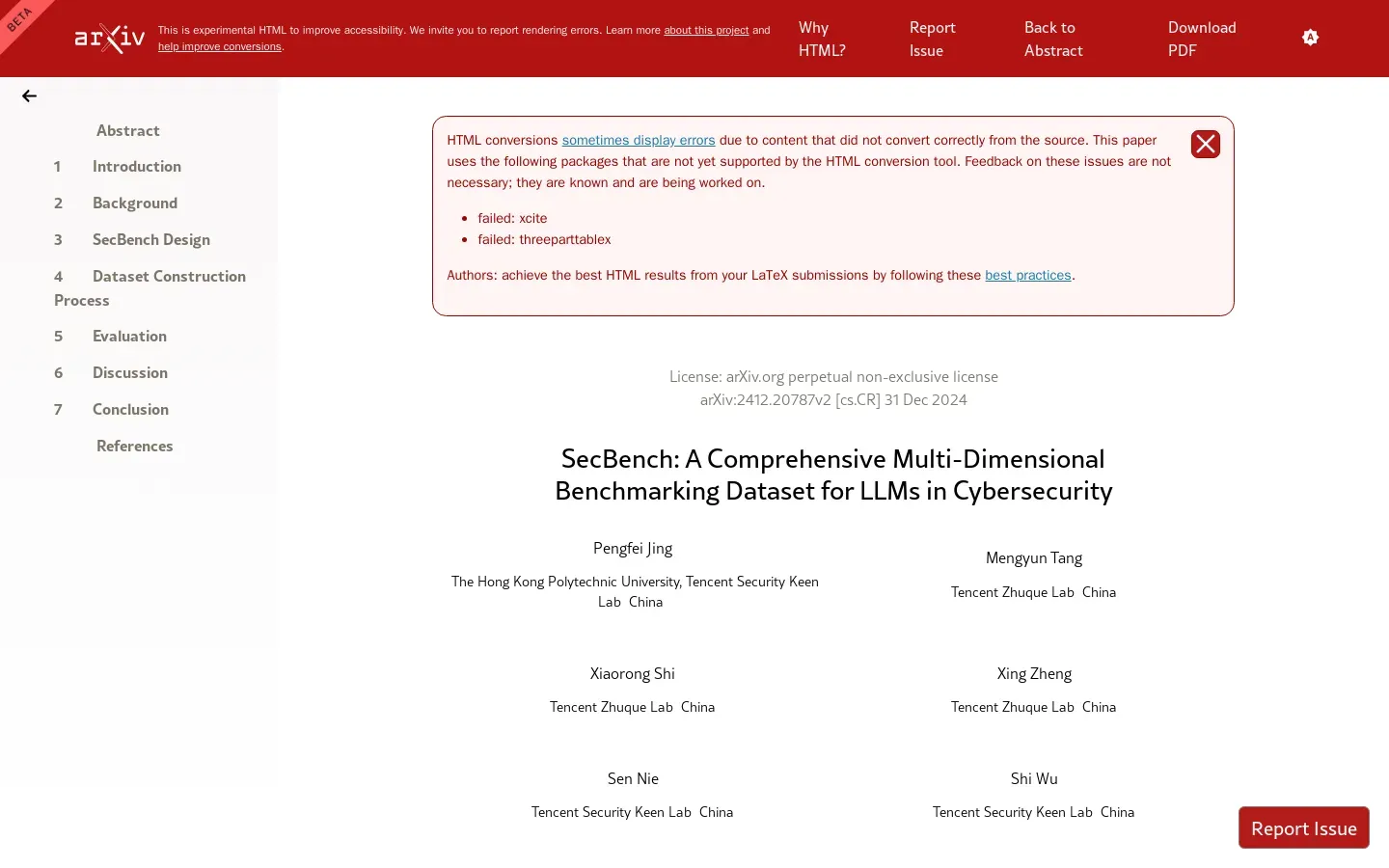
New Tool Enhances Grading in Cybersecurity Education
/ 3 min read
Quick take - Recent research has advanced educational technology and cybersecurity by developing innovative tools and methodologies for data labeling, question design, and automated grading systems, highlighting the potential for improved assessment practices in educational settings.
Fast Facts
- Recent research has advanced educational technology and cybersecurity, focusing on improving data labeling, question design, and automated grading systems.
- Key findings include the successful use of LLM-Based Data Labeling for enhanced efficiency and accuracy, and the introduction of OpenCompass, a nuanced grading system.
- The Cybersecurity Question Design Contest was established to generate high-quality questions, emphasizing the importance of well-structured assessments in cybersecurity education.
- Methodologies included data collection and the use of tools like SecBench and GPT-4 to enhance grading and feedback mechanisms.
- Future directions involve improving automatic grading systems and expanding the Cybersecurity Question Design Contest to enrich educational resources.
In an age where cybersecurity threats loom larger than ever, the demand for innovative assessment tools in education and training has surged. As organizations strive to cultivate a workforce adept in cybersecurity skills, the methodologies employed to evaluate understanding and capability become critical. One promising approach gaining traction is OpenCompass, which assigns a robust 10-point grading scale that meticulously considers the completeness, accuracy, and relevance of student responses. This nuanced grading system not only fosters deeper engagement but also aligns closely with industry expectations.
At the heart of this educational evolution lies the integration of LLM-based data labeling techniques. By harnessing powerful language models like GPT-4, educators can streamline the process of data collection and initial dataset construction. These models excel at interpreting complex student responses, facilitating a more efficient categorization of answers based on predefined criteria. This automated approach significantly reduces the burden on instructors while ensuring that assessments remain both rigorous and fair.
While these advancements present exciting opportunities, they are not without limitations. For instance, existing frameworks such as SecBench have highlighted gaps in their capacity to adapt to rapidly evolving cyber threats. The challenge remains in creating adaptable systems that can maintain relevance amid an ever-changing landscape. Such limitations necessitate ongoing research and development to ensure that educational tools keep pace with the sophistication of real-world cybersecurity challenges.
In parallel, initiatives like the Cybersecurity Question Design Contest underscore the importance of collaborative efforts to enhance question quality and relevance. By inviting contributions from diverse participants, these contests foster creativity and innovation in crafting assessments that resonate with learners’ experiences. As a result, educational institutions can curate a repository of questions that not only test knowledge but also encourage critical thinking about contemporary cybersecurity issues.
Looking ahead, the potential applications of automatic grading systems for short-answer questions could revolutionize how we assess students in technical fields. Automated grading tools powered by advanced AI could provide instant feedback, enabling students to iterate on their learning more effectively. The implications extend far beyond traditional education; industries could leverage these technologies for continuous professional development, ensuring that employees remain equipped with cutting-edge skills.
As we delve deeper into the future of cybersecurity education, it becomes evident that integrating intelligent assessment frameworks will be vital in preparing a new generation of professionals. With emerging technologies continuously reshaping the landscape, staying ahead requires not just adaptation but a proactive approach to learning and evaluation. The journey toward building resilient cybersecurity teams hinges on our ability to innovate educational methodologies—an endeavor that promises to strengthen both individual competencies and organizational security postures in an increasingly complex digital world.



